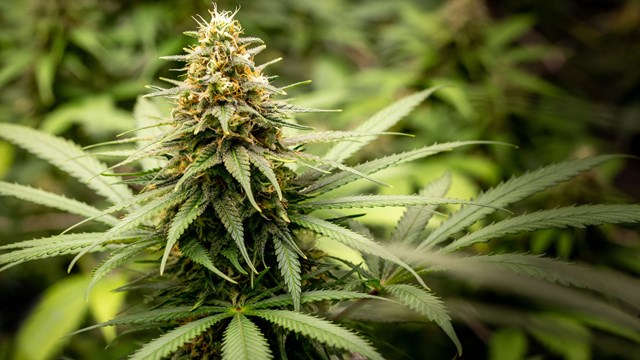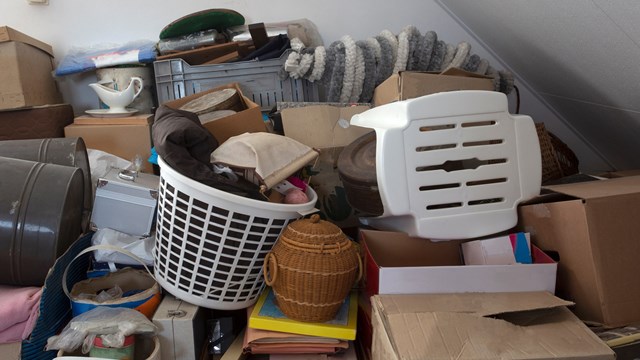
With cannabis use becoming increasingly normalized (as of this year, 38 states permit medical marijuana use and 23 permit both medical and recreational consumption), co-op and condo administrators are faced with yet another quality-of-life issue: conflict between those who are happy to finally be able to use cannabis openly, and those who still consider it an illicit drug, regardless of its change in legal status. Second-hand tobacco smoke is already a chronic nuisance in many—if not most—communities, and many residents and boards alike are concerned that legal weed will add a whole new dimension to the problem.
Where There’s Smoke…
Setting aside the larger, more subjective moral debate around legalizing drugs, the biggest questions facing multifamily boards and managers are more practical and center around safety—namely, that of non-smoking residents being exposed to second-hand smoke, and of non-residents accessing common areas to sell or deliver cannabis products.
First, the issue of the smoke itself: Are all smokes equal under the law, or are some types more privileged than others? Can a co-op or condo community permit tobacco smoking within apartments, but forbid consumption of cannabis?
The term ‘second-hand smoke’ refers to a non-smoking person inhaling a smoker’s ‘first-hand’ smoke, and being put at risk for illness as a result. It’s been known for decades that second-hand cigarette smoke has negative health consequences even for those not consuming it directly—it aggravates existing allergies and conditions like asthma and emphysema, and can lead to heart and respiratory disease, as well as cancer. While marijuana smoke may contain fewer toxins, less is widely known about its possible dangers. Even if smoking was completely harmless, non-smokers still have a right to not inadvertently partake every time their neighbor does.
“Even in your own apartment, there is no absolute right to smoke, if doing so creates a nuisance or disturbs your neighbors,” says Michelle Quinn, a partner with Gallet Dreyer & Berkey LLP, a law firm based in New York City. “Most co-op and condo buildings have existing provisions in their proprietary lease and/or house rules that prohibit residents from permitting offensive odors from seeping into their neighbors’ apartments, or the common areas of the building. Odor nuisances are not limited to smoking—they can also include smells from cooking, pets, and hoarding behaviors. Boards can place restrictions on all kinds of smoking; generally speaking, the limitations on smoking cannabis would be the same as the limitations on smoking tobacco or vaping/electronic cigarettes. It would be extremely difficult to justify permitting one and not the other, since now they are all legal.”
Across the river in New Jersey, the situation is similar, though the Garden State had a year-long head start over New York in legalizing recreational cannabis use. As dispensaries began selling marijuana products for non-medical purposes, “one co-op client [of ours] was concerned about the second-hand smoke problem, and asked for legal advice,” says Scott Piekarsky of Phillips Nizer, a law firm located in Hackensack. “The statute speaks to smoking, vaping, and aerosolizing of cannabis. If you’re a co-op, you can regulate or prohibit it in both the units or structure of the co-op. Co-op boards have broad powers, but condos can only institute rules if approved by the association and the majority of unit owners. Additionally, condominium associations may be limited to regulating this issue in common areas only. Co-op corporations own everything included in the property, but condominium associations only own pieces of common elements. As a co-op shareholder, you really are more like a renter than an owner. By nature of that ownership structure, co-op boards have different rights than condos.”
Other states and municipalities are also figuring out their policies and approaches to cannabis use. “Smoking definitely comes to my mind as one of the biggest topics in our communities in regard to the disturbance it can create for non-smoking residents,” says Anita Chmilarski, owner of Linear Property Management, LLC, in Tyngsboro, Massachusetts. (Massachusetts legalized recreational weed in 2016.) Post-legalization, “most associations have adopted a rule about the distance from a building at which a resident can smoke, but some are going so far as to consider amending their master deed to render their community completely non-smoking. Also, where association rules allow owners to have some of their own plantings in limited common areas, we will likely see instances where marijuana is growing in areas to which underage residents would have access. Boards are already discussing whether it is prudent to amend their rules now in order to address this issue before it becomes a problem.”
Having Your Weed & Smoking It Too
So if a co-op or condo community is weighing whether to go smoke-free, does doing so mean that all types of smoke have to be banned, or can the board be selective as to what’s okay and what’s not? What effect would a blanket smoking ban have on existing tobacco smokers? Must they be grandfathered in (which seems a bit contradictory to eliminating smoke from the building’s environment), or can a board force owners who currently smoke to go cold-turkey?
“A rule would have to apply to all kinds of smoking,” says Quinn, “since the basis for the rule would be grounded in the best interest of the building. Permitting one form of smoking and not another defeats that purpose. Whether from cigarettes or pot, there would still be a risk of smoking-caused fires, and neighbors would still complain of offensive odors. Besides, if a ban were selectively applied, the building would not be considered ‘smoke-free’ and would not benefit from the higher property values generally commanded by non-smoking buildings.”
According to Piekarsky, “It’s probably better to ban all smoke, rather than one or the other. It should also be taken into consideration when drafting such rules that there are existing tobacco regulations in New Jersey prohibiting smoking in common areas, etc., but those same regulations don’t say you can’t smoke in your unit.” Again, that relates to the contrasting forms of co-op and condo ownership and the rights of residents in those respective communities.
Grandfathering
When it comes to addressing the rights of a community’s smoking residents in the context of drafting rules and navigating the issue of cannabis use, Quinn says that “there is no legal or standard requirement for ‘grandfathering’ or other considerations.”
In communities that opt to ban smoking in both common areas and private units, grandfathering permits smoking residents already living in the building when the policy is implemented to continue to smoke despite the ban. New residents and their guests must abide by the new rule.
Again, if the whole idea of banning smoking is to, well, ban smoking, allowing a percentage of one’s community to keep on puffing is clearly not ideal. Quinn points out that having some residents exempt from the ban “makes enforcing the ‘smoke-free’ policy considerably more difficult due to the pervading nature of smoke and odors.” She also stresses that “‘grandfathering’ and medical marijuana use are both exceptions to a building’s no-smoking policy.”
Piekarsky adds that he believes the law in New Jersey does provide for grandfathering. “It is a legal thing. I think there would be grandfathering if you moved in [to your building] when smoking was allowed. The board would be hard pressed to prohibit it for those who bought in as smokers, and those who require medical marijuana would be able to smoke it without restriction. Medical use trumps anything else. Use of medical marijuana with a provider prescription is the same thing as emotional support animals being allowed in buildings that otherwise prohibit pets.”
Cannabis Shops as Tenants
Among the many lingering effects of the pandemic in many cities is a surfeit of empty commercial spaces—many of them on the ground floors of multifamily properties, some of them co-ops and condos. Residential buildings with commercial space often depend heavily on the rental of their ground floor as part of their overall financial planning, so when those tenants were forced to close, that income evaporated. For some buildings, waiting indefinitely for an ‘ideal’ tenant—a dental practice, say, or an accounting firm—to take over their vacant space simply isn’t feasible. As a result, some co-op and condo boards are considering renting to tenants they might not have in the past—and in the era of legal cannabis, that group includes smoke shops and so-called ‘dispensaries.’
Legality notwithstanding, the matter of cannabis sales isn’t as simple as just setting up shop and hanging out one’s shingle. In New York, for example, the city and state’s decriminalization of recreational marijuana included mandatory licensure for cannabis retailers wishing to get into the business legally. The program prioritizes those who were formerly incarcerated for marijuana-related charges, but the roll-out of licenses has been slow—and in the meantime, with demand high (no pun intended) and serious money to be made, unlicensed smoke shops have sprung up on what seems like every other block, often taking over storefronts vacated by businesses done in by the pandemic. The state and city are attempting to put a stop to that.
To protect licensed retailers and retain some level of oversight and regulation of the burgeoning brick-and-mortar cannabis industry, this past May a new amendment was added to Section 715-A of the New York Real Property Law, spelling out grounds and procedures for the eviction of unlicensed dispensaries. It also includes stiff penalties for landlords who rent space to unlicensed smoke shops—and that includes co-ops and condos.
“The new law is attempting to penalize landlords for renting to unlicensed smoke shops,” says Harris Davidson, an associate with the Manhattan-based law firm Rosenberg Estis.
“To be fair,” says Davidson, “it’s a very gray area. But if the enforcement agency can prove to a housing court judge that the landlord knowingly broke the law, the landlord could be liable to paying a penalty of three times the rent the tenant paid while there and violating the law. The reasoning behind the penalty is to take away the financial incentive to just rent the space, to get someone in there. If you’re caught, you pay triple the amount in fines.”
There’s no jail time attached to the law, Davidson continues, but “if the landlord acts too slowly [to evict an unlicensed retailer], the state can step in and assume the role of the landlord and the landlord would be flipped on the other side of the case. If the state proves a violation at that point, both the landlord and the tenant would be liable.” The upshot, says Davidson, is that if you’ve got some vacant space, a cannabis retailer might make for a tempting tenant—certainly some of your residents might be thrilled at the convenience—but no matter what state or jurisdiction you’re in, just make sure they have all the appropriate and necessary state licenses in place, or your income stream could be gone in a puff of smoke.
As with any socially and legally evolving issue, rules around marijuana use in co-ops and condos will almost certainly require updating, adjusting, and amending to reflect the law and uphold residents’ rights. Consulting your legal advisors to help guide your board to make the best decisions on behalf of your particular community is a wise place to start.
Cooper Smith is a staff writer for CooperatorNews. A J Sidransky also contributed reporting to this article.









Leave a Comment